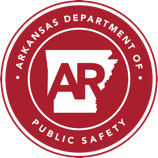WHAT VICTIMS NEED TO KNOW ABOUT THE CLEMENCY PROCESS
FREQUENTLY ASKED QUESTIONS
Q: What is Clemency?
A: Clemency is the process through which the Governor considers requests for granting reprieves, commutations of sentence, and pardons after conviction.
Q: What is a Pardon?
A: A pardon is the exemption of a convicted person from the penalties of an offense or crime. A pardon can be requested by someone who is no longer incarcerated.
Q: Who May Apply for Clemency?
A: Any person serving a term of any number of years, life, life without parole, or a sentence of death may apply for executive clemency. A person who is not presently incarcerated may also apply.
Q: What are the Steps in the Clemency Application Process?
A:
- Any person making a request for clemency must first have their application processed by the Board of Parole in what is called a screening. This will determine if there is any merit to the application. A victim can only make written recommendations to the Board of Parole during this step of the process.
- If the application is found to have merit, it will most likely be scheduled for a hearing before the Board of Parole. A victim will be notified (if they have requested these notifications) when a hearing is scheduled and can contact the Board of Parole about providing written or oral recommendations. Once the hearing is complete the Board will vote on a recommendation to send to the Governor for final action.
- The Governor will review the application, the recommendation of the Board of Parole, and all other pertinent materials before making his decision. If the Governor intends to grant the application for clemency, he will announce his intent and allow a 30 day period for public comment. If the Governor decides to deny the application it will be announced and no further action will be taken.
Q: How Often Can Someone Apply for Clemency?
A: Any person convicted of capital murder or a Class Y, A or B felony who makes an application is not eligible to re-apply for four years after the date the application was denied.
Q: Who is a Victim?
A: A crime victim is defined by A.C.A. § 16-90-1101 as a victim of a sex offense, an offense against a minor, or a victim of a violent crime.
Q: How Will a Victim be Notified of an Application for Clemency?
A: The Executive Clemency Coordinator will send notice to the victim’s (or next of kin’s) last known address if they have registered to receive such notices. If the victim or next of kin is registered with the VINE program they will also receive a phone call and/or email notifying them of the application.
Q: How Can a Victim Have Input into the Clemency Process?
A: A victim, or the next of kin, may provide written or oral recommendations regarding the granting of clemency. The type of recommendation they may make will depend upon which step of the process the application is in. Any written materials will be made available to the inmate for his/her review. If the victim plans to make an oral recommendation they will need to contact the Board of Parole to schedule a time to make their statement at a victim impact hearing.
Q: Where and When will the Victim Impact Hearings Be Held?
A: The impact hearings are generally held twice a month on Wednesdays at the Board of Parole office in Little Rock.
Q: Can a Victim Bring Someone to the Victim Impact Hearing?
A: The victim may bring as many people as they would like to the impact hearing, but presentations will be limited to 15 minutes. The victim must have prior approval of the Board to bring members of the press or media.
For more information please contact:
Office of the Governor
State Capitol, Room 250
Little Rock, AR 72201
Phone: 501-682-2345
Fax: 501-682-3597
http://governor.arkansas.gov/
Arkansas Parole Board
1302 Pike Ave., Ste. D
North Little Rock, AR 72114
Phone: 501-682-3850
Fax: 501-682-3860
https://doc.arkansas.gov/parole-board/
For VINE Information:
1-800-510-0415
www.vinelink.com


